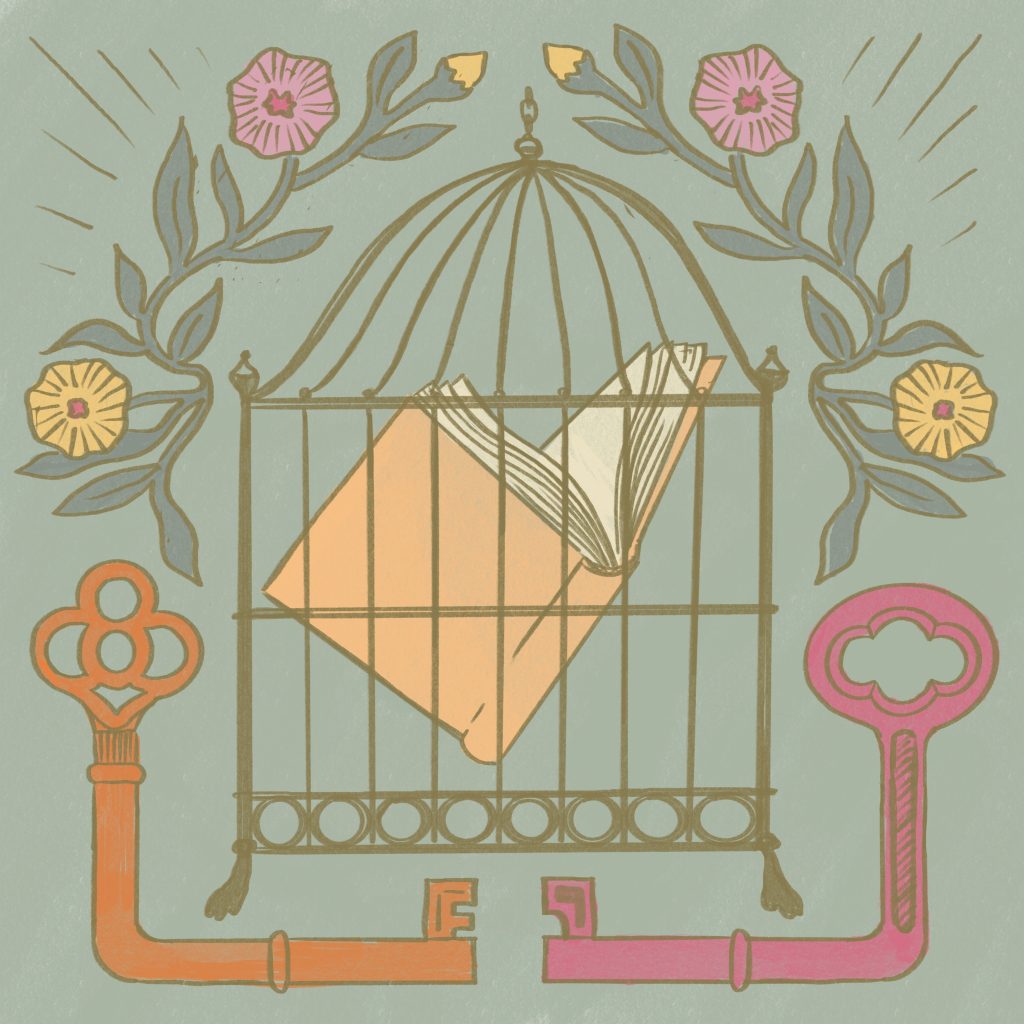By Miranda Culp
Late last month, the California Senate passed the Freedom to Read Act, a bill that prohibits public and school libraries from banning books based on their content. This legislation was a response to a record number of banned books during the first half of the previous school year, when over 4,000 titles nationwide were challenged in school districts and public libraries, according to PEN America. For libraries, that represents a 92% increase over the previous year. In California alone, 98 titles were the targets of organized campaigns to remove them from the shelves.
This recent surge of book challenges across the U.S. is largely aimed at titles that explore racial injustice and LGBTQ+ experiences, like “All Boys Aren’t Blue” by George M. Johnson and the graphic novel “Gender Queer, a Memoir” by Maia Kobabe. These campaigns are often unsuccessful in actually removing the book in question from the shelves, but they do contribute to a polarizing atmosphere in schools, libraries and communities.
In one extreme case, Alabama House Bill 4, which is up for a vote in 2025, would extend obscenity laws to public and school libraries, making it legal to criminalize librarians for supplying books that contain “gender-oriented conduct.” While California just gave librarians more power, Alabama is trying to take their protections away.
While the banning of books in this country goes back to at least Harriet Beecher Stowe’s “Uncle Tom’s Cabin,” it’s important to remember that the right to read is protected by the First Amendment. This has not stopped state legislators in Florida, Missouri, Texas and Utah from passing laws with sweeping language to restrict books on “pornography,” which includes books like “The Handmaid’s Tale,” by Margaret Atwood and “The Bluest Eye,” by Toni Morrison. Both of these books tackle difficult topics and are considered to be among the most important works of literature in the 20th century.
So, how are librarians and bookstores responding here in Sacramento? Emily Autenrieth, owner of A Seat at the Table Books in Elk Grove says she spoke as a parent and a bookseller at the The Elk Grove School Board meeting several times along with other parents about book bans in school libraries and other restrictions.
“What we saw was a lot of fear about these books and what they could do to their children,” Autenrieth says. “And they’re not wrong. Books do open our minds to experiences that are not ours, give us a safe way to learn about each other and when that happens, we become more inclusive people. So that fear is weirdly valid.”
However, it’s clear to Autenrieth that the opponents of these books, “are not reading these books. They are finding talking points on conservative websites and quoting them verbatim.” A Seat at the Table sub-specializes in under-represented voices, posting a list of recommended banned books on its website, providing a quiet space for kids with learning differences, and offering readings by authors of color and drag story time.
“It’s about leaning into the joy of it all,” Autenrieth says. “From where I’m sitting, I can see ‘Julián is a Mermaid’ and ‘Julián at the Wedding’ — those are joyful books! They celebrate the diversity that exists in our community, so we don’t even need to look back at the hate behind us, we can focus on celebration,” she says, referring to two picture books that address gender expression.

For booksellers, bans are not necessarily bad for sales. “It’s ironic,” says senior bookseller Bino Prassa at Avid Reader on Broadway in Sacramento, “because [book bans] generate more interest when they have made a book controversial.” Prassa observes that when there is an attempt to ban a book, more customers become curious about it. “We just make sure those books are on the shelf and that they are accessible to people.”
The Lavender Library, a nonprofit lending library in Midtown Sacramento that focuses on LGBTQ+ books, has a banned book club that meets monthly. Since 1997, the Lavender Library has been a repository for queer and non-binary books, magazines and videos, ensuring these materials are preserved and that the public can access them.
Despite the recent legislation in California, librarians still see a wider atmosphere that discourages the open exchange of ideas. Kathryn Hunt is a librarian at Lincoln Public Library in Placer County and lives in Sacramento. “There’s a sense that we’re safe in blue states, but we still have plenty of people in the state that feel public access to information should be curated by their personal preferences,” Hunt says.
Speaking from her personal experience, Hunt describes her approach. “When someone is concerned about something that’s in the library, my first response is to help them find the thing they are looking for. That helps reduce the conflict. Not every book is for every reader. That doesn’t mean it’s not of interest or value to someone. But we can’t do that for the next person if the book isn’t there.”
Hunt also echoes what Autenrieth says regarding the nature of the challenges, “When people pull lists of 200 titles with talking points, and they haven’t read any of them, that’s a massive drain on library resources to process those challenges.”
The California Freedom to Read Act will require public libraries to create a formal process that will give both the staff and a board the chance to defend the book’s place on the shelf using a set of criteria around diverse collection development.
“Our job is to provide many points of view,” says Hunt. The freshly minted legislation, presently awaiting Gov. Gavin Newsom’s signature, also protects librarians from firing, demotion or other retaliation for refusing to take a book out of circulation.
Sacramento County is home to over 13 independent bookstores and 28 library branches, many of which will be celebrating Banned Book Week Sept. 22-28. The bookstore I co-own, Amatoria Fine Art Books in Sacramento, will certainly be taking part in the festivities.
“If you don’t like those books, don’t read those books,” Autenrieth says. “Read whatever you want. That’s your right in a democracy.”
This story was funded by the City of Sacramento’s Arts and Creative Economy Journalism Grant to Solving Sacramento. Following our journalism code of ethics and protocols, the city had no editorial influence over this story and no city official reviewed this story before it was published. Our partners include California Groundbreakers, Capital Public Radio, Outword, Russian America Media, Sacramento Business Journal, Sacramento News & Review, Sacramento Observer and Univision 19. Sign up for our “Sac Art Pulse” newsletter here.


Be the first to comment on "Sacramento booksellers and librarians celebrate the freedom to read during Banned Book Week"